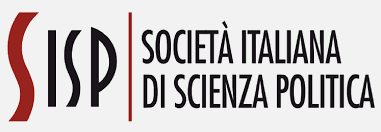Riportiamo la call for papers del panel 5.3 “The Missing Piece of the Public Action Puzzle: Professionalism and New Professionalism in Public Administration and Public Policy” della Conferenza SISP, che si terrà a Roma dal 8 al 10 settembre 2022.
Il panel è coordinato da Laura Cataldi (Università di Torino) e Barbara Sena (Università di Roma Unitelma Sapienza).
Di seguito si riporta il testo della call:
The significance of professionalism as a form of social organization (Freidson 2001) and mode of regulation (Crompton 1990; Kirkpatrick et al. 2021) of the whole society is widely recognized. It is also generally accepted that professions have an ethical and democratic mission: protecting public interest and producing collective goods and services (Jeggins et al. 1987). In recent times, climate change, the Covid-19 pandemic, and NRRPs have brought the world of the professions back to the center of public discourse and policies: the call for professional expertise and action seems stronger than ever now. Actually, the public sector has always been largely made up of professional bureaucracies (Mintzberg 1979) and populated by a variety of professionals, ranging from the more traditional ones (e.g. doctors and lawyers), to street-level bureaucrats often labelled as semi-professionals (Etzioni 1969) (e.g. social workers and teachers), to workers who simply adopt a professional perspective (e.g. public servants) (Pugh 1989), while not possessing all the required “constellation of characteristics” (Rabin 1981). Nonetheless, the lens of professionalism, intended both as ideology (Ventriss 1993) and process or “methods of achievement” (Dazell&Pugh 1993), i.e. professionalization, has not yet been sufficiently applied to the analysis of public organizations and policies. Thus, the panel can be an opportunity to address this challenge. Adopting a dynamic perspective of professionalism in the analysis of public action makes it possible (1) to overcome some misleading categorizations, starting from that one between bureaucrats, managers and professionals, (2) to broaden the expertise issue, expressly including a collective dimension, and (3) to give a thick interpretation of the ongoing processes, also in terms of institutional responsiveness, innovation and learning. On these fronts, professionalism and its – not obvious – evolutions toward a new professionalism (Evetts 2011), more inclusive, open and democratic, are key inhibiting or favoring factors to be considered. The focus is not the unresolved debate whether the public administration could be acknowledged as a “profession” and public management as a “professional practice” (Sarker 2019). Rather, the panel intends to promote a reflection on roles, jurisdictional boundaries (Abbott 1988), and spaces of situated agency (Bevir&Rhodes 2006) which different types of professional workers, in terms of status and power, have in public action and in all phases of policymaking.
Therefore, some questions are: What form does the agency of professional workers take in public action? Does it remain confined to the micro level or does it reach the meso and even the macro level, that one of political participation and policy entrepreneurship? Are professionals vectors of learning, guarantors of responsiveness, and agents of innovation and change in institutional contexts? How does their professionalism matter?
The panel invites theoretical and/or empirical papers (either in Italian or English) on these issues, based on single case studies or comparative analysis, using qualitative or quantitative methodologies.
La scadenza per l’invio degli abstract è domenica 22 maggio. Gli abtract devono avere lunghezza di massimo 10.000 caratteri e possono essere scritti in italiano o inglese.
Qui il link alla conferenza.
Qui il link per effettuare la submission.
